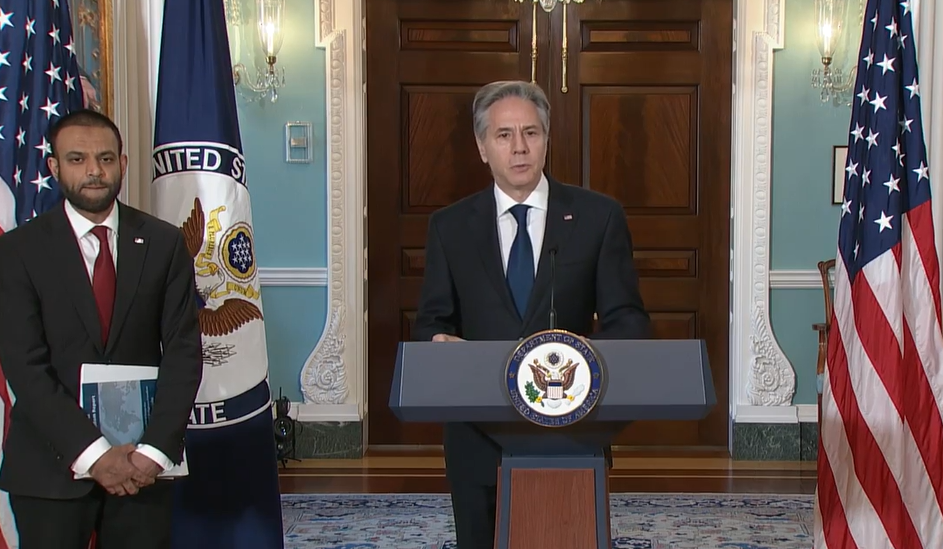
WASHINGTON (BP) – Christians and other faith groups saw increased religious freedom in some countries while suffering continued and growing persecution in others, the U.S. State Department said May 15 in its 2022 report on international religious freedom.
Advances noted in Belgium, Brazil, Canada, the European Union, Croatia and the Central African Republic were tempered by new and increased restrictions against Muslim Uyghurs in China, Catholics in Nicaragua, women in Iran, Christians and Shia Muslims in Afghanistan, religious minorities in Burma and targeted attacks and government restrictions against Christians and others in India.
“Over the past year we’ve seen real progress in some parts of the world on expanding religious freedom as people demanded their rights. Civil society groups pushed for change and governments listened,” U.S. Secretary of State Anthony Blinken said in releasing the 2022 Report on International Religious Freedom. “Unfortunately, the report also documents the continuation and, in some instances, the rise of very troubling trends. Governments in many parts of the world continue to target religious minorities using a host of methods, including torture, beatings, unlawful surveillance, and so-called re-education camps.”
Anti-conversion, blasphemy and apostasy laws are used to justify harassment and are weaponized against many, Blinken said, and some countries withhold basic government services and certain employment from religious minorities.
Presented as a fact-based, comprehensive report of nearly 200 countries and territories, it was released 25 years after the passage of the International Religious Freedom Act of 1998 empowering the State Department in its diplomatic promotion of religious freedom internationally.
“Throughout 2022, we witnessed authoritarian governments wielding blasphemy, apostasy, and anti-conversion laws against many individuals, including Christians, Muslims, and humanists or atheists. Anti-Semitic and anti-Muslim attacks also continue to increase in many regions, often following discriminatory rhetoric and public pronouncements of bigotry, even by government officials,” the State Department said in releasing the report. “We continue to focus on the protection of members of religious minority groups across the globe.”
Among advances noted, Belgium formally recognized Buddhist minorities allowing them to teach their faith in state schools and apply for federal funding to cover such education. Brazil codified religious freedom for Afro-Brazilian indigenous communities and criminalized discrimination against all religious practices. Canada and the European Union created new offices to combat Islamophobia. Croatia appointed its first special advisor to combat antisemitism, and the criminal court of the Central African Republic continues to prosecute cases of religious-based violence and other civil rights violations against civilians.
Rashad Hussain, U.S. Ambassador-at-Large for International Religious Freedom, joined Blinken in noting specific cases of persecution against religious groups, including Christians, Muslims and others.
Hussain spoke of Russian atrocities against Christian churches in Ukraine, the repression of people of faith in Russia who speak against the war; the seizure, imprisonment and banishment of Muslim Uyghurs in China; China’s repression of Tibetan Buddhists, Christians and Falun Gong practitioners; the displacement and persecution of religious minorities in Afghanistan, and the criminalization of religions other than Islam in Saudi Arabia.
Internationally, governments increasingly restrict access to holy sites, continue to pass ani-conversion and blasphemy laws, and withhold education from women in the name of religion.
“The report describes growing bigotry at the societal level in many places around the world,” Hussain said, noting “the ongoing and deeply disturbing proliferation of anti-Semitism, anti-Muslim hatred, and xenophobia that target religious and non-religious communities.”
The department encouraged public advocacy from concerned individuals in concert with governments and multilateral bodies in protecting and securing religious freedom and positive change.
The report, covering Jan. 1-Dec. 31, 2022, is available here.
–30–














